Day 581 of 1000
This is the sixth in a series of posts on the benefits of skipping high school and going straight to college. The introductory post and index to all the other posts in the series is here. You can see their undergraduate results and post-graduate (PhD) chase here. I try to keep the results updated as they occur.
[Previous post in series]
[Next post in series]
This post is not about socialization in a homeschool. The move from homeschool to college after the eighth grade at age fourteen is a somewhat more thorny issue. I have explained why we believe the socialization that occurs in typical homeschool settings is profoundly better than what currently happens in traditional government and private school settings here. There are links to reasearch and additional articles on socialization in that post. This post describes some of the things we considered with respect to socialization when we chose to move our kids from homeschool directly into college.
Timing
The timing has somewhat to do with the fact that we were not aware that Kelly could have handled college work at least a couple of years before she went to college. After she passed her third or fourth CLEP exam and got good scores on the ACT college placement exam it became apparent that she could probably handle the academic rigor of college. Still, we do not think we would have put her in college then even if we would have been aware that she could handle it. The reason is that she was very young and she would have been attending college on her own. We think it was good that she waited that extra couple of years during which she took many more CLEP tests for college credit and worked on the understanding the intellectual underpinnigs of our worldview1.
When the time came to consider college for Kelly when she was sixteen, we still thought she might be a little unsure of herself to handle the social aspects of college on her own. We did not want her to be too far from home and we did not want her to be alone. By that time, we had been through some pretty rigorous worldview education with both the kids. Kelly and Christian have always been very supportive of each other, so we thought that, if they went to the Community College together, they would, at least, give each other some moral support and it might not be so scary. We now knew through testing and for other reasons that Christian could hand college, go we decided to pull the trigger and put them in college together.
The Social Environment at Community College
We were surprised by the high professional and academic standards of the teachers at Wake Tech, but even more surprised and appreciative for the kindness and helpfulness of both the teachers and the administrative staff. Of course there were a few who did not want to do their job or had (being gracious here) bad people skills, but they were definitely the exception and not the rule. Our expectations about the students was quite a pleasant surprise. There was a very interesting mix of students at Wake Tech. There was a good mix of foreign students, vocational and college prep students right out of high school, people in the work force trying to upgrade their skills or get a degree, and maybe a little bit unique to Wake Tech, soldiers recently discharged from military service at Ft. Bragg, going to school on the G.I. bill.
Kelly and Christian befriended a pretty amazing mix of people. They made four special friends with whom they remained in contact. Nestor and Daniela are a brother and sister from Venezuela who come from a close-knit Latin family. They took the same hard math and science classes as Kelly and Christian. What was really great about them is that they also had a Latin mother and understood Kelly and Christian in ways that are sometimes difficult for gringos. Christian still gets to have a class with Nestor and Daniela every now and then at NCSU.
Mike is an Iraq War veteran who pretty much adopted the kids. They took almost all of their math classes together. It is hard to over emphasize what a great thing it was to have Mike as their friend. Make was old enough, mature enough, and sure enough of himself to not care to much what anyone thought about him, including the commie English professor he took one semester before Kelly and Christian got him. He was unfailingly kind to the kids, more conservative (but not by much) than me, and willing to give the kids advice and correction when they needed it. They still love the guy and are grateful that Mike went on to NCSU with them.
Finally, there is Mr. McCarter. He was the kids math professor for Calculus II, Calculus III, and Linear Algebra. He talked and joked with the kids and Mike every day before and after class. They send Mr. McCarter an email every now and then to let him know how they are doing. They owe a lot to him for the encouragement he gave them and the rigor with which he taught his math classes.
The upshot is that Community College was very scary when the kids first started. They got to turn down invitiations to parties that were illegal on their own right, but would have been profoundly illegal if two underage kids would have showed up there. The saw lots of drugs, heard all kinds of immoral jokes and stories, and heard all manner of casually used bad language. They even saw a fist fight our two. They came away from Community College with their Christian worldview intact and with a good mix of wonderful friends.
The Social Environment at Big State University
The social transition to NCSU was interesting. It seemed to be a big advantage to not have been socialized in the artificial world that only exist in traditional government and private schools where self-esteem and political correctness are preached as if they were holy writ. The entire educational experience of most of the kids entering the university was in a highly regulated, institutionalized environment where decisions were made for them about what they studied, when they could talk with a time and place for virtually everything chosen by the school district or state set regulation. The self-esteem thing was particularly apparent when the kids went to new student orientation. Since the kids were both in their Junior years in hard degrees, so they did not have to spend much time with the freshmen. By the time students make it to their Junior year in a hard (STEM) degree, some of the narcissism gets knocked out of them.
Conclusion
All in all, the kids homeschool transition served them very well in their move from Junior high school to college.
1. See this link on worldview considerations.
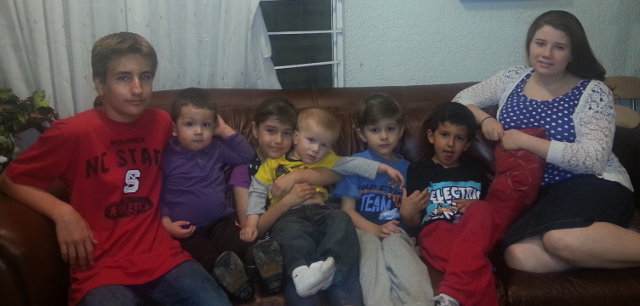


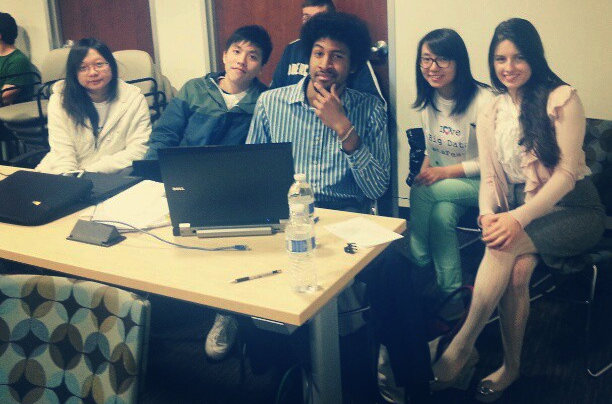

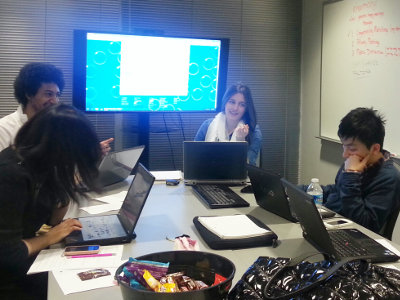 Some of Kelly’s Chinese friends invited her to participate on their team in the intercollegiate statistical competition called
Some of Kelly’s Chinese friends invited her to participate on their team in the intercollegiate statistical competition called 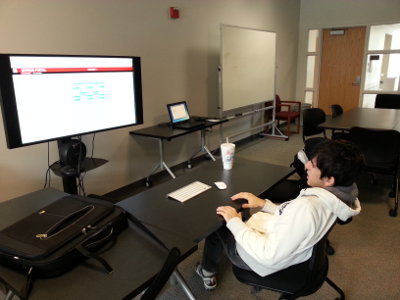 Lorena flies to Monterrey to see Grandpa Lauro and Grandma Conchita. I was thinking I would finally get a chance to drive the Fiesta, but Kelly needs to practice her driving for when she goes off to her internship this summer, so I got stuck again in the drivers seat.
Lorena flies to Monterrey to see Grandpa Lauro and Grandma Conchita. I was thinking I would finally get a chance to drive the Fiesta, but Kelly needs to practice her driving for when she goes off to her internship this summer, so I got stuck again in the drivers seat. It is only just my opinion, but I honestly believe Mexican pizza feature the worst combination of ingredients of an pizza I have ever eaten. I have been married to a Mexican woman for over twenty years. She is the best cook I have ever met. She does great Chinese food, great Greek food, great Korean food–you name it, she does it and she does it extremely well.
It is only just my opinion, but I honestly believe Mexican pizza feature the worst combination of ingredients of an pizza I have ever eaten. I have been married to a Mexican woman for over twenty years. She is the best cook I have ever met. She does great Chinese food, great Greek food, great Korean food–you name it, she does it and she does it extremely well.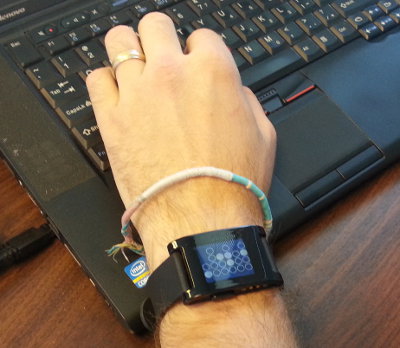 My buddy, Brad, at Bioptigen signed up to get one of the first E-Paper smart watches on
My buddy, Brad, at Bioptigen signed up to get one of the first E-Paper smart watches on